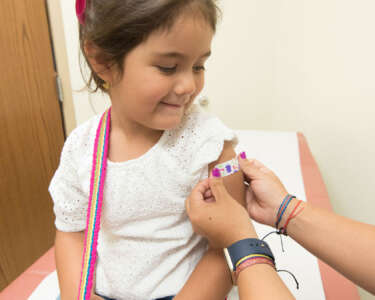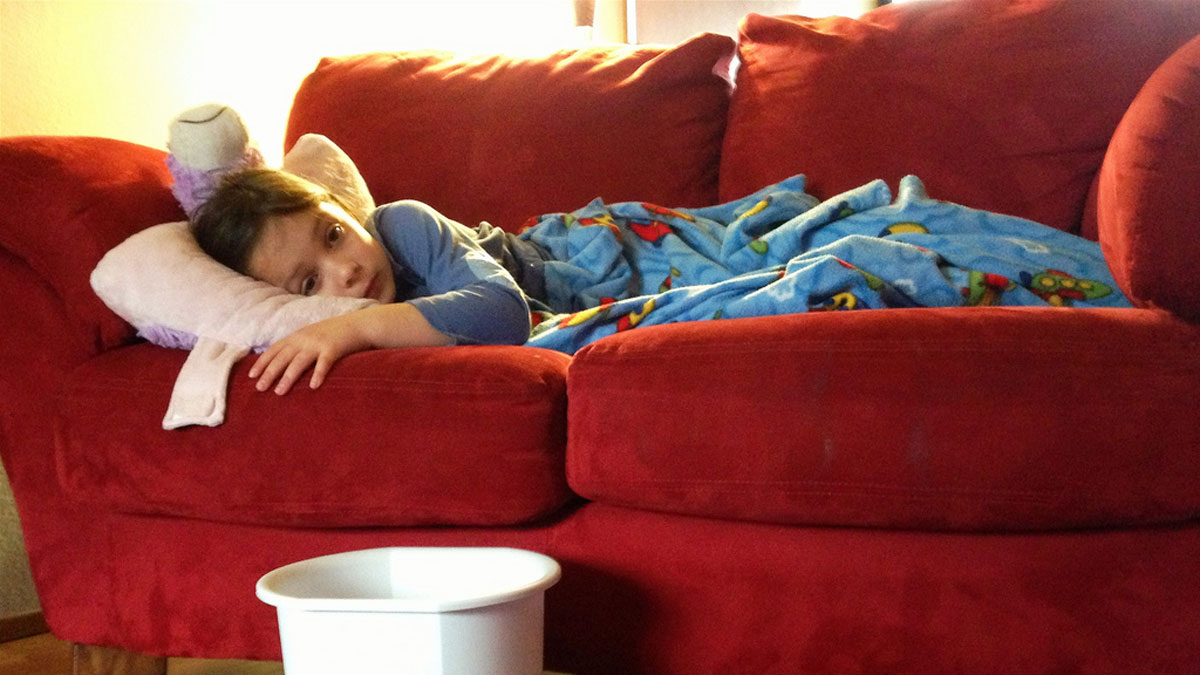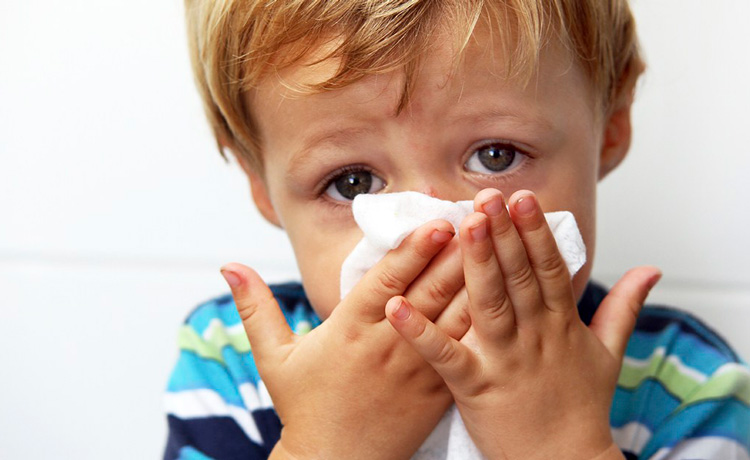The Centers for Disease Control and Prevention (CDC) has advised that influenza (flu) activity in the U.S. has increased significantly over recent weeks with influenza A(H3N2) viruses predominating so far this season. In the past, A(H3N2) virus-predominant influenza seasons have been associated with more hospitalizations and deaths in persons aged 65 years and older and young children compared to other age groups. Symptoms of the flu can vary from mild to severe and include fever, cough, sore throat, runny or stuffy nose, body aches, headache, chills, fatigue and sometimes vomiting and diarrhea (more common in children than adults).
What can be done to reduce the risk of infection or reduce the severity of symptoms?
The CDC recommends that to protect against the flu, the first and most important thing you can do is to get a flu vaccine for yourself and your child. Vaccination is recommended for everyone 6 months and older. It is still early in the flu season, so it is not too late to get the flu vaccine. The peak of flu season occurs in late December until early March 2018. Contact your medical provider regarding the vaccine. Miami-Dade County Public Schools partnered with Healthy Schools, LLC in the “Teach Flu a Lesson” campaign during the 2017-2018 school year. More than 10,000 students and 341 faculty staff received a FREE flu vaccine at their designated school site.
The CDC recommends the following additional actions to prevent the spread of the flu:
- Avoid close contact with people who are sick.
- If anyone in your home is sick with flu-like illness, try to keep him or her in a separate room from others in the household, if possible.
- Anyone with flu-like symptoms should stay home for at least 24 hours after his or her fever is gone except to get medical care or for other necessities. The fever should be gone without the use of fever-reducing medicine. Contact your medical provider if the fever continues after 24 hours.
Fight the flu / add one
- Cover your mouth and nose with a tissue when you cough or sneeze. Throw the tissue in the trash after it has been used.
- Wash hands often with soap and water. If soap and water are not available, use an alcohol-based hand rub.
Avoid touching your eyes, nose and mouth. Germs spread this way. - Clean and disinfect hard surfaces and objects that may be contaminated with germs, including bathroom surfaces, kitchen counters and toys for children. Clean by wiping them down with a household disinfectant according to directions on the product label.
The CDC website contains additional resources and information: cdc.gov/flu/index.htm














 Deering Estate
Deering Estate
 Massage Envy South Miami
Massage Envy South Miami
 Calla Blow Dry
Calla Blow Dry
 My Derma Clinic
My Derma Clinic
 Sushi Maki
Sushi Maki
 Sports Grill
Sports Grill
 The Healthy Kitchen
The Healthy Kitchen
 Golden Rule Seafood
Golden Rule Seafood
 Malanga Cuban Café
Malanga Cuban Café

 Kathleen Ballard
Kathleen Ballard
 Panter, Panter & Sampedro
Panter, Panter & Sampedro
 Vintage Liquors
Vintage Liquors
 The Dog from Ipanema
The Dog from Ipanema
 Rubinstein Family Chiropractic
Rubinstein Family Chiropractic
 Your Pet’s Best
Your Pet’s Best
 Indigo Republic
Indigo Republic




 ATR Luxury Homes
ATR Luxury Homes


 2112 Design Studio
2112 Design Studio
 Hamilton Fox & Company
Hamilton Fox & Company
 Creative Design Services
Creative Design Services
 Best Pest Professionals
Best Pest Professionals
 HD Tree Services
HD Tree Services
 Trinity Air Conditioning Company
Trinity Air Conditioning Company
 Cisca Construction & Development
Cisca Construction & Development
 Mosquito Joe
Mosquito Joe
 Cutler Bay Solar Solutions
Cutler Bay Solar Solutions


 Miami Royal Ballet & Dance
Miami Royal Ballet & Dance
 Christopher Columbus
Christopher Columbus
 Pineview Preschools
Pineview Preschools
 Westminster
Westminster
 Carrollton
Carrollton
 Lil’ Jungle
Lil’ Jungle
 Frost Science Museum
Frost Science Museum
 Palmer Trinity School
Palmer Trinity School
 South Florida Music
South Florida Music
 Pinecrest Orthodontics
Pinecrest Orthodontics
 Dr. Bob Pediatric Dentist
Dr. Bob Pediatric Dentist
 d.pediatrics
d.pediatrics
 South Miami Women’s Health
South Miami Women’s Health

 The Spot Barbershop
The Spot Barbershop
 My Derma Clinic
My Derma Clinic




 Miami Dance Project
Miami Dance Project

 Rubinstein Family Chiropractic
Rubinstein Family Chiropractic
 Indigo Republic
Indigo Republic

 Safes Universe
Safes Universe
 Vintage Liquors
Vintage Liquors
 Evenings Delight
Evenings Delight





 Atchana’s Homegrown Thai
Atchana’s Homegrown Thai
 Baptist Health South Florida
Baptist Health South Florida

 Laser Eye Center of Miami
Laser Eye Center of Miami
 Visiting Angels
Visiting Angels
 OpusCare of South Florida
OpusCare of South Florida

 Your Pet’s Best
Your Pet’s Best





 HD Tree Services
HD Tree Services
 Hamilton Fox & Company
Hamilton Fox & Company


 Creative Design Services
Creative Design Services